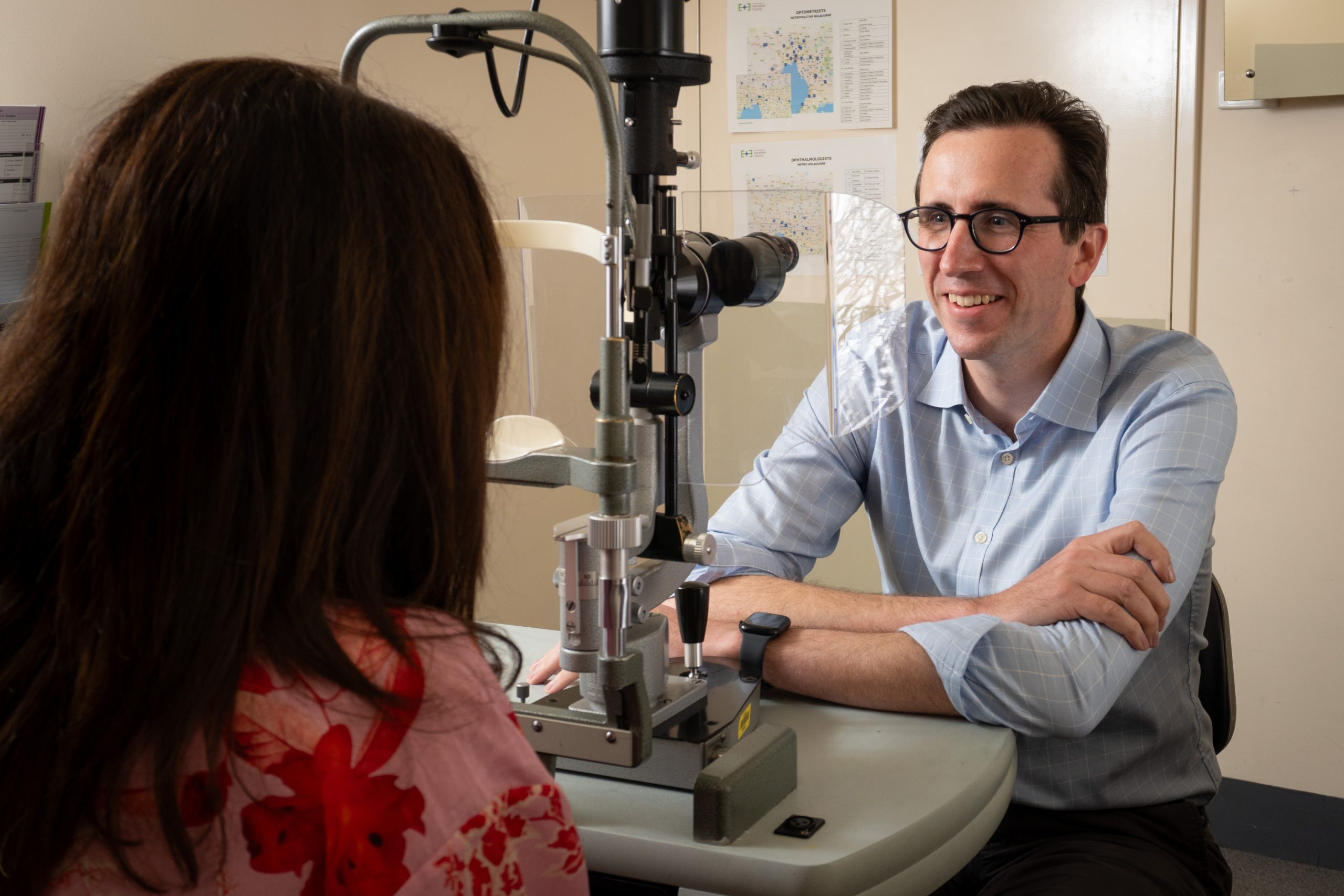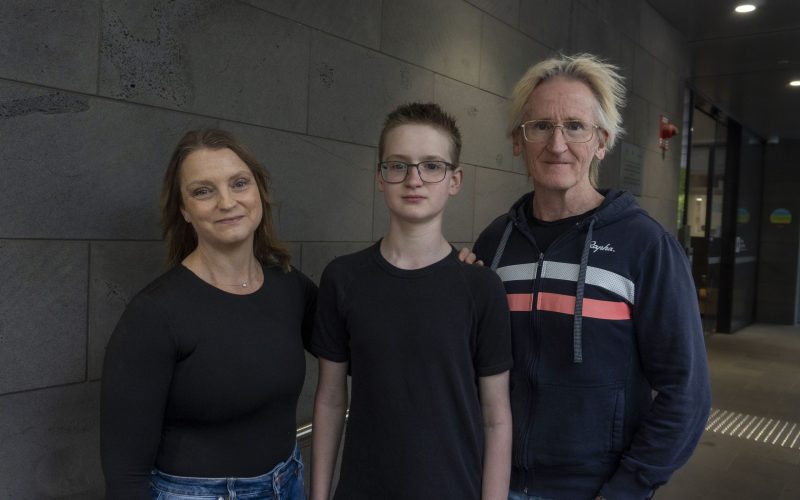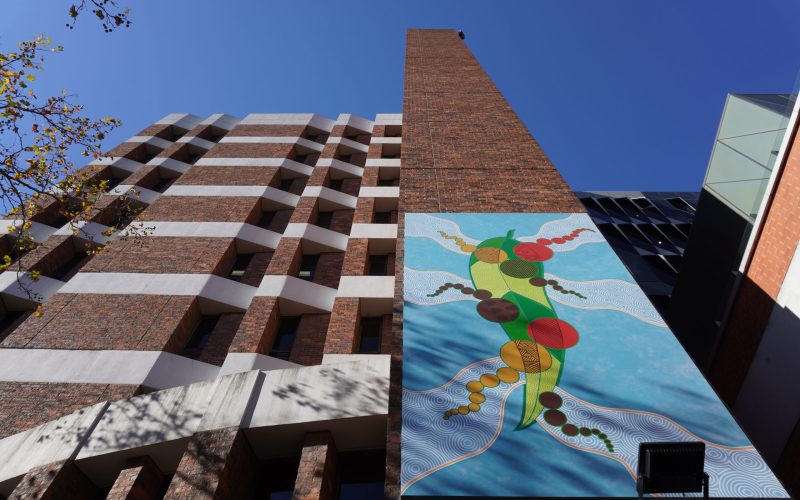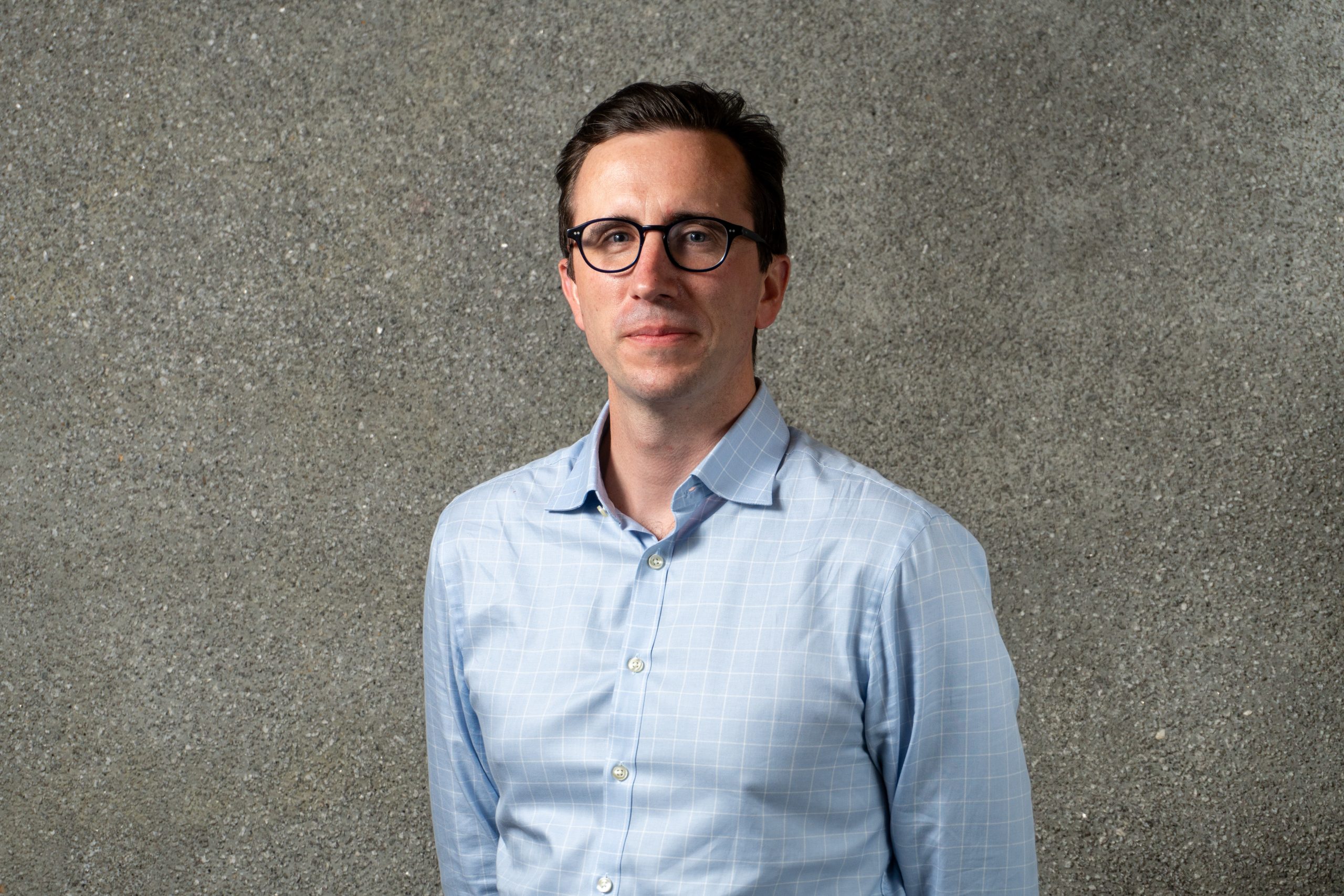
Dr Rod O‘day is an Ophthalmologist at The Royal Victorian Eye and Ear Hospital.
We’re excited to share with you the world-leading clinical research Dr O’Day and his team at the Eye and Ear have been trialling right here in Victoria, and the promising early results they’re seeing.
“We’ve seen a tablet reduce the size of very large eye cancers to the point that the eye can be saved, and the cancer treated without causing any vision loss. Through a tablet patients can take in the same way as a headache or cold and flu pill,” Dr Rod O’day explains.
Let us explain how this research came about.
Ocular melanoma is the most common eye cancer adults can develop. It’s rare and often difficult to diagnose because it’s not visible to the naked eye. A late diagnosis can mean that cancer spreads to other parts of the body. This is why this diagnosis has a very high mortality rate.
What’s more, we’re the only surgical centre that treats eye melanoma in Victoria and we look after patients across Victoria and Tasmania.
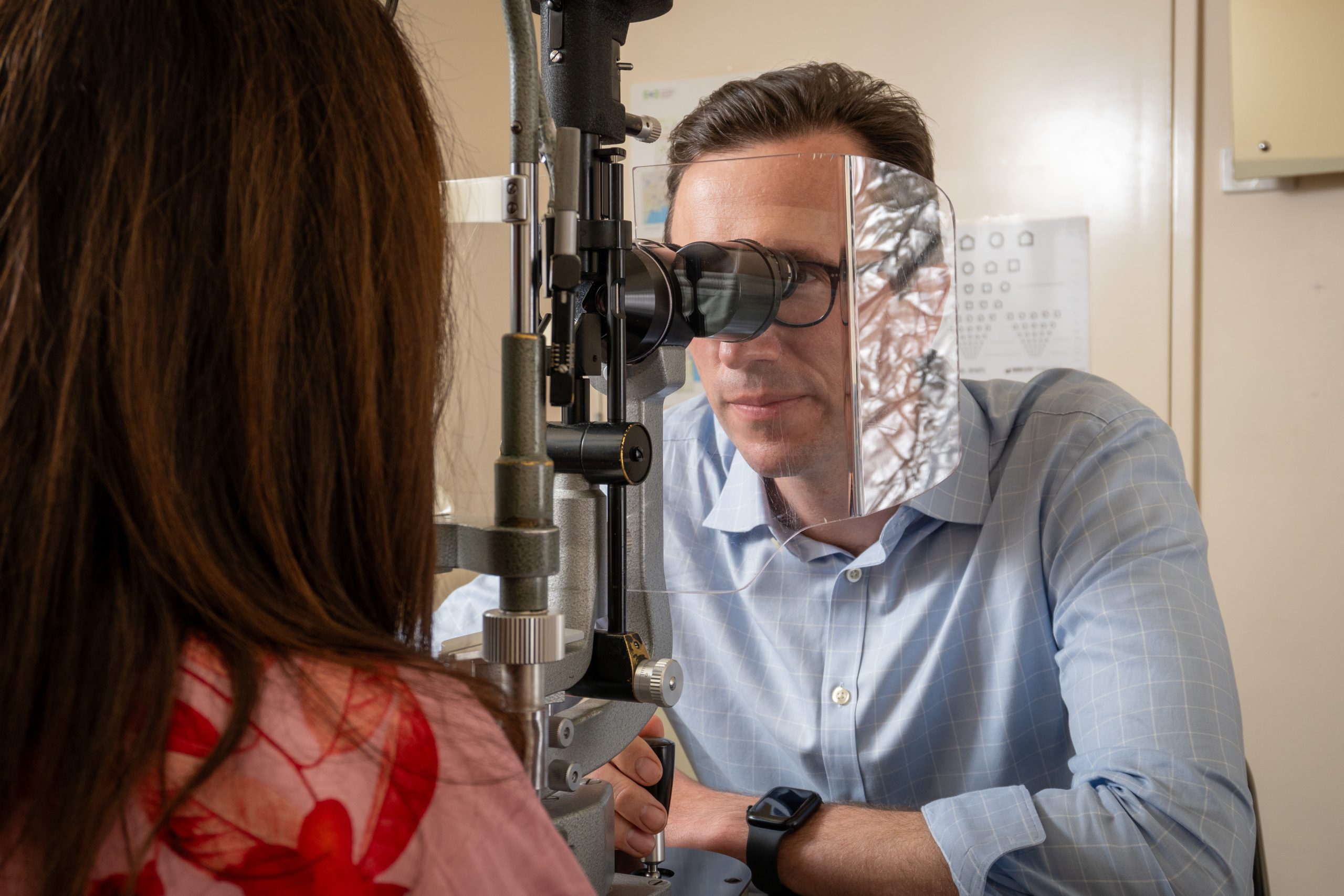
But this latest research gives us, and patients and their families, hope. For the first time in the world, we are at a turning point in the way that we manage treatment for patients with this cancer.
You can be a part of this inspiring new horizon in eye cancer research and treatment. If you’d like to make a donation today, please call 1800 808 137, or via our website: https://donate.eyeandear.org.au/.
“You see, normally when we see a patient with eye melanoma, there are two usual forms of treatment – either we need to remove the eye, or we treat it with surgical radiotherapy. Patients often lose their sight as they go through a life-altering treatment for a deadly disease.”
“But through this most recent trial, we have been able to treat patients with large tumours in their eyes through a tablet they can take orally, to shrink the tumours to the point that their vision and eyes can be saved,” said Dr O’Day.
The trial has so far helped save the vision and eyes of two patients. Initially, these patients would have only one option – to remove their only sighted eye to treat the cancer. But with this new clinical trial treatment, we’ve been able to save their eye and preserve their vision.
The Eye and Ear hospital is at the forefront of this change. We are the first country in the world to have a trial like this and to have the first patients that have their eyes saved because of this treatment. Being by the patients side every step of the way through this is a rewarding aspect of Dr O’Day’s role.
“Helping patients to make the decision that’s right for them is a real privilege. I will never take for granted the impact of our work and the connection I make with every patient I meet. And my team is committed to continuing to work with the best minds to bring new treatments that save the vision of more people than ever.”
